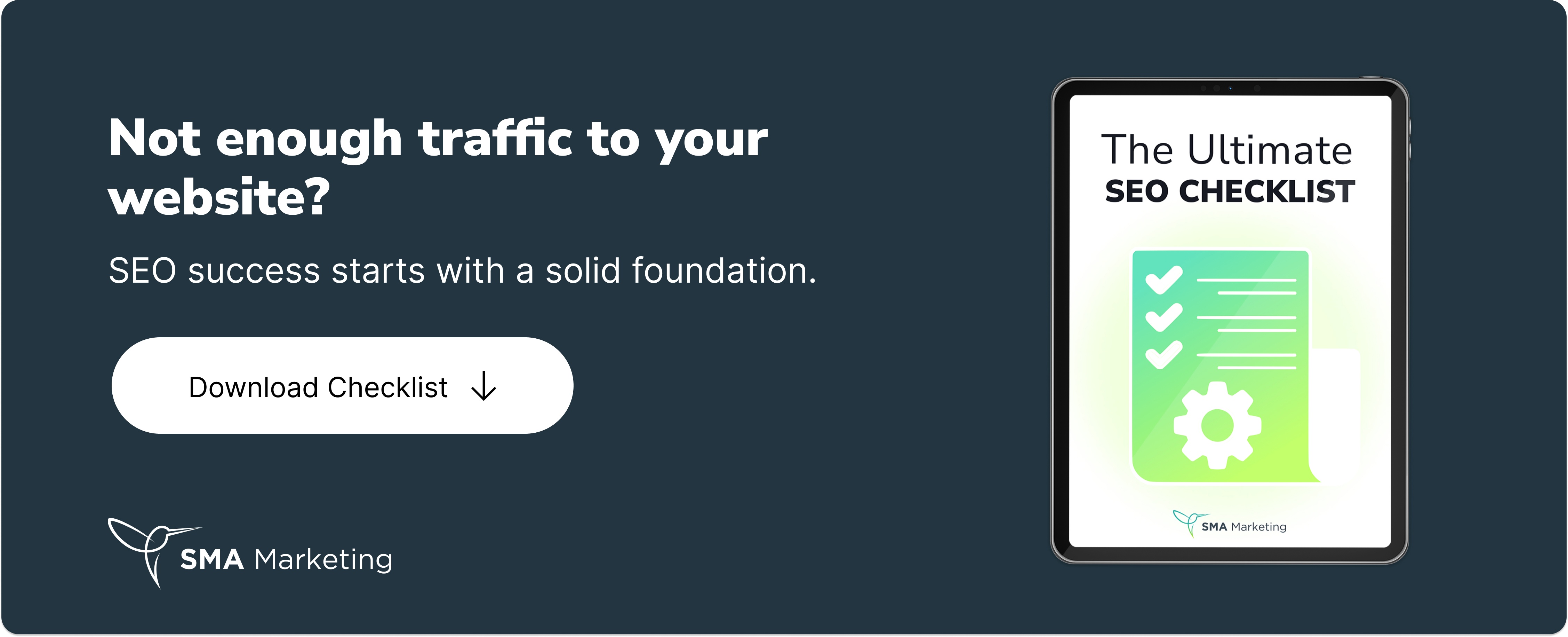[ad_1]

The most consistent thing about Google algorithm updates is that the search engine is constantly changing how search results rank. In fact, Google is reported to change its search algorithm around 500 to 600 times each year. Even though most of these tweaks go unnoticed, it’s easy to get wrapped up in the hype when a major algorithm update hits. At SMA Marketing, we’ve learned that most of the time, Google won’t acknowledge a major update until the SEO world starts to report the impact. When we do hear about an update, the information we get is very minimal.
As AI improves Google continues to tweak its search algorithm with the goal of being the preferred search browser for the majority of users. While their updates may occasionally drive SEOs crazy, Internet Live Stats reports that Google processes over 99,000 searches every single second for a total of 8.5 billion searches a day in 2022, so they must be doing something right!
Every update from Panda in 2011 to Core Web Vitals is intended to improve the user experience, however, not all updates are equal and some Google algorithm updates can harm a poorly optimized site. That’s why it’s vital to always use search engine optimization best practices. Implementing on-page SEO and technical SEO best practices will provide an excellent user experience for your target audience and solidify your search rankings to remain strong as Google continues to understand the context of your content. Today, we’ll look at practical ways to handle a Google algorithm update.
3 Ways Handle Every Google Algorithm Update
Pause – Don’t Panic
When you realize there has been a major algorithm update that may impact your site’s search results, the first thing to do is to pause. Don’t panic. Pause and check your organic search results. Remember, if you’re implementing SEO best practices, you don’t have to worry about what Google is doing to enhance contextual rankings!
But if your site has bad links and hasn’t made an update just as shifting to a mobile-first index template, you will likely find your organic rankings fall.
Wait Before Reacting
In 2020, Google rolled out a Core Update in January that lasted three days. Now, eventually, the Core Update did roll out and remain. However, the January Core Quality Update was initially pulled back because of the increase in rank fluctuations that resulted in spam sites with poor domain authority ranking higher than high-quality sites with fresh content.
Google users complained loudly about poor search experience, SEO experts, and business owners. It only took a few days for Google to realize their algorithm needed further work. It’s worth waiting a few days to see how an algorithm plays out before doing a bunch of work on your site, especially since multiple adjustments are happening each day.
Adjust As Needed
Google may not tell us what its updates entail, but they explain the reason behind many of its update goals. For example, the goal of the July 2021 spam update is to improve the quality of search results by weeding out sites that the algorithms think are spammy.
By paying attention to what Google is looking for and by also listening to what they are not saying, you can avoid costly errors. And the best part is you don’t need to deal with updates blindly. SEO Experts watch site algorithms looking for the possible impact of algorithm adjustments to know when their sites have been impacted. To stay up to date with the latest information follow these industry experts:
Google’s Algorithm Updates
A lot has changed over the past 10 years. Here’s a list of Google algorithm updates.
- 2011 – Panda
- 2012 – Venice
- 2012 – Penguin
- 2012 – Pirate
- 2013 – Hummingbird
- 2014 – Pigeon
- 2014 – HTTPS/SSL
- 2015 – RankBrain
- 2016 – Possum
- 2018 – Medic
- 2019 – BERT
- 2020 – Core Updates
- 2021
- April 2021 Product Reviews Update
- June 2021 Broad Core Update
- June 2021 Page Experience Update
- July 2021 Core Update
- July 2021 Spam Update
- 2022 – Core Web Vitals
Major algorithm updates can be scary, but you’ll be okay if you are doing SEO right and not trying to beat the system by buying links and spinning content. When you realize a major update has happened, stay calm, wait to see the impacts, and make calculated adjustments if needed. Stay focused on building a strategy that delivers your users what they are looking for, creates connections that build links, and focuses on what you can control.
If your site suffered from the latest Google algorithm updates, you might need the support of an SEO expert to get things turned around.
.png?width=800&name=How%20to%20Handle%20%20a%20Google%20%20Algorithm%20Update%20(2).png)
Need help optimizing your site for Google search? Download our free guide below.
Editor’s Note: This article was originally published in March 2017 and had been updated with fresh content.
[ad_2]
Source link








